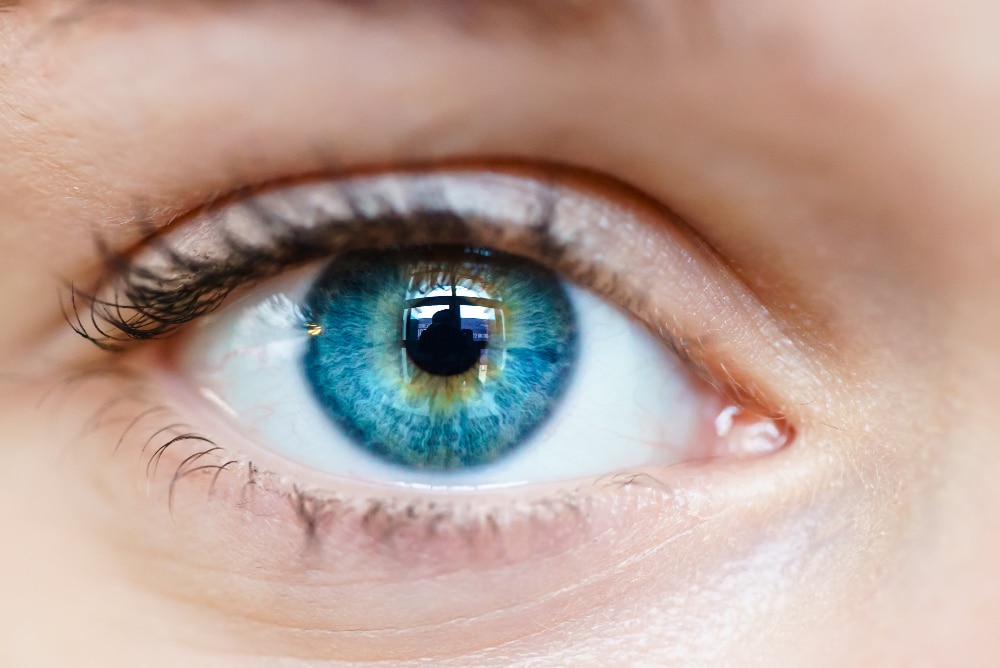Expectant mothers anticipate many changes in their bodies during pregnancy and after delivery. However, not many are aware of the possibility of their vision getting affected. Pregnancy-induced increase in water retention and blood volume coupled with hormonal and blood pressure fluctuations can take a toll on a woman’s vision.

Eye Care Tips for Expectant Mothers
For example, you may experience blurry vision, dryness and irritation, nearsightedness, and a change in the shape of the cornea anytime during and after pregnancy. Below we discuss ways to manage these and other symptoms without compromising your pregnancy.
Seek a doctor’s guidance
Vision changes during pregnancy are a common occurrence. However, most of the changes disappear shortly after delivery, or after you stop breastfeeding, so they shouldn’t be a major cause for concern. You also won’t need to seek medical attention if they don’t bother you. However, if your vision reduces or gets distorted significantly, you need to see an eye expert. Click here to learn more on how pregnancy changes vision.
Use artificial tears or eye drops to diminish dry eye
Dry eyes make for another common vision problem among expectant moms. It can be a major issue if you wear contact lenses. An eye expert will most likely recommend artificial tears or eye drops, which serve as natural tears in wetting your eyes and easing the dryness. Some eye contact lenses are soft and can be affected by the preservatives in artificial tears, so make a point of reading the usage instructions of both the lenses and the artificial tears before applying.
Change eyewear
Since eyewear is prescribed with the strict circumstances of your vision in mind, a small change can render your glasses useless. Wearing your old eyewear might make your vision even worse in some cases. If you experience this, you will need a new set of glasses for temporary use.
Be careful with makeup
Makeup comprises chemicals and compounds that can affect your vision whether or not you are expectant. However, the imbalances that come with pregnancy may make you more susceptible to harm and cause you problems that you haven’t experienced before. In a word, whether or not you have vision problems during pregnancy, it is advisable to be careful with makeup.Keep from touching the inside of your eyes with the makeup tools, and wash your face thoroughly when you get back home. Additionally, ensure your eye shadows, eyeliners, and other products are not expired before applying them.
Go for an eye exam
As a proactive measure, you might want to pass by an eye clinic during one of your visits to a maternity hospital. Some vision problems develop slowly and may go full-blown towards the end of pregnancy or even after delivery, meaning you can’t be truly sure you are okay until an expert examines you. Being proactive helps you detect issues while they are still manageable and haven’t exhibited adverse effects. Treatment is also cheaper and minimally invasive when the condition is still in its infancy.
Monitor your blood sugar levels
Blurred vision can be the product of diabetes or its temporary cousin, gestational diabetes. Sudden surges in blood sugar levels can cause your lens to swell, taking a toll on your ability to see. To correct this, you need to lower your blood sugar level to 70 to 130 mg/dL before meals and at most 180 mg/dL one to two hours after meals. For most people, blurry vision induced by diabetes lasts a few hours, while for some, it lasts up to three months. You don’t want to go about treating your diabetes unaided. Tell your personal care provider and eye doctor about your condition and let them advise you on the way forward.
Rest your eyes
Your eyes, like the rest of your body, need extra hours of rest and sleep during pregnancy. If, for some reason, you can’t nap enough, sporadically close your eyes or spend time in a low-lit room to avoid irritation from bright light. Round it up with seven to nine hours of uninterrupted nighttime sleep.
Take out your contacts
As stated above, contact lenses can irritate dry eyes and cause discomfort. They might even lead to injuries if you leave the irritation unaddressed for too long. You, thus, need to wear your contacts only when you need them. You could also switch to glasses altogether.
Endnote
Vision problems are relatively prevalent among expectant moms, although most of them only exhibit mild symptoms. The above eye care tips should help you manage your symptoms and halt any emerging eye problems.

